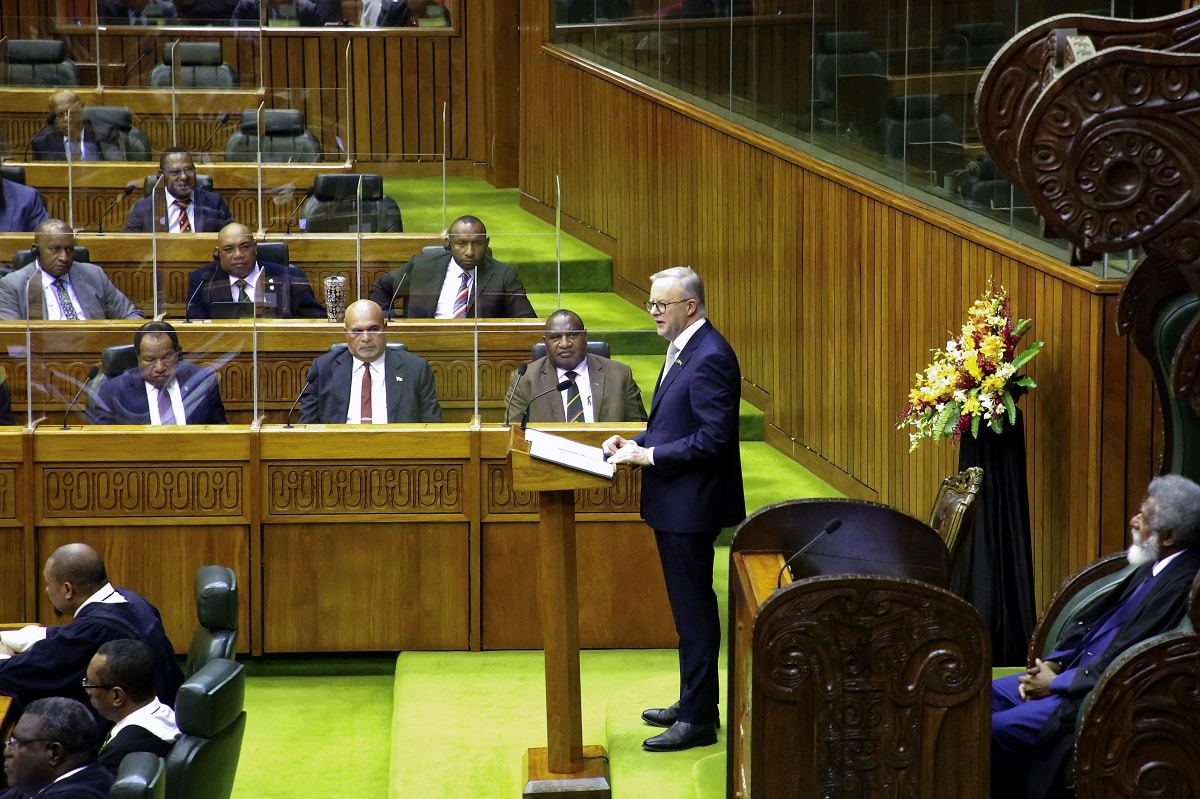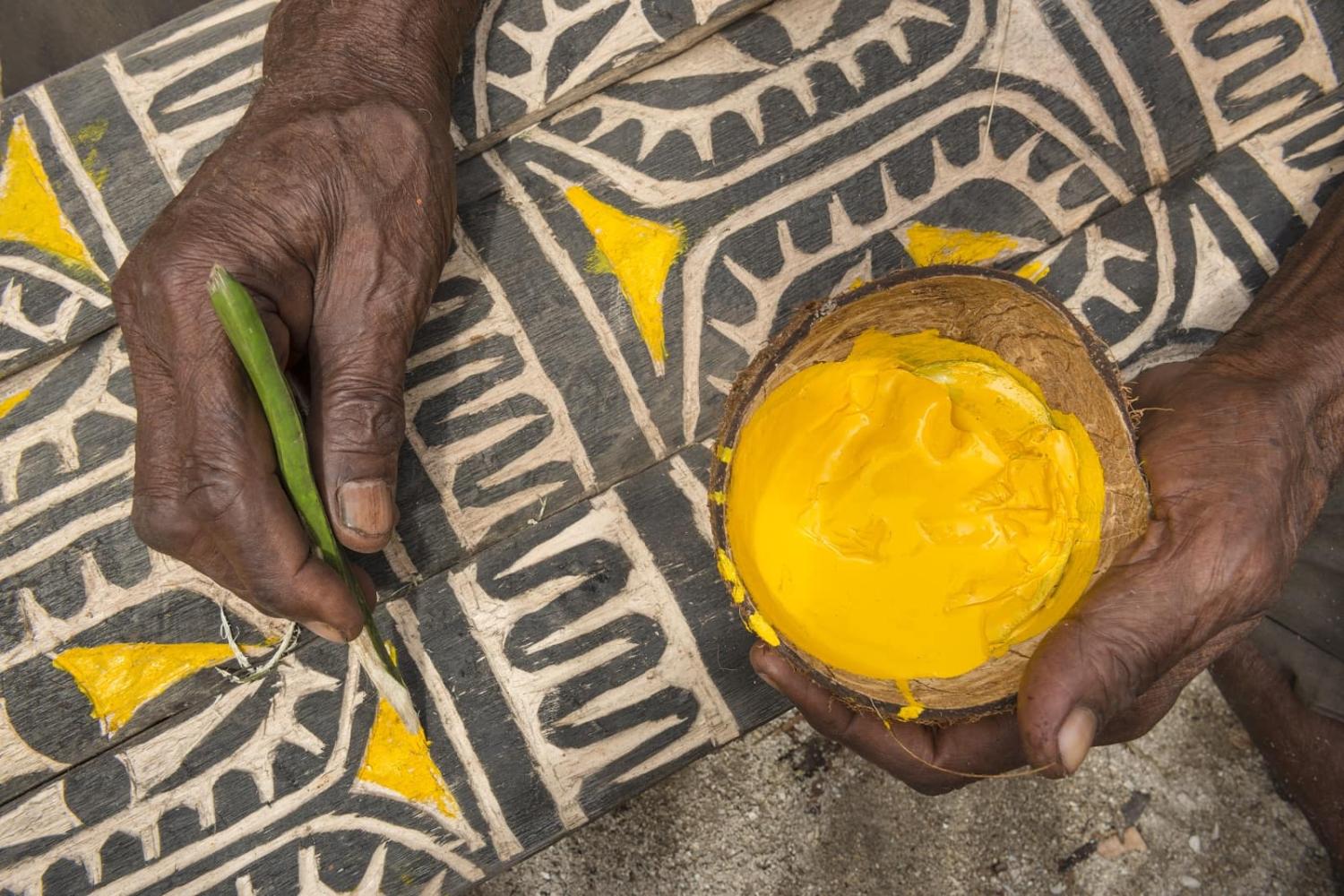When Australian Prime Minister Anthony Albanese addressed the Papua New Guinea parliament in January, he entitled his speech “a bond between equals”. There was much in his address that aligned with the PNG government’s current priorities, including increasing PNG exports to Australian shores, enabling more PNG workers to enter Australia, and supporting the bid for a “PNG-based Pacific team” to join the National Rugby League.
But how the bilateral relationship is represented at the government-to-government level between political leaders is not always how it is perceived and experienced at other levels of PNG society.
In our recent research led by the Whitlam Institute, “PNG Voices: Perspectives on Australia and the World”, we surveyed 536 ordinary Papua New Guineans originating in 21 of PNG’s 22 provinces – including remote villages – and asked them to reflect on dreams for PNG and views of relations with Australia, among other issues.
A key finding across the data was the importance of respectful relationships, including pride in Papua New Guinean cultural norms of kindness, hospitality and respect. While many respondents spoke very positively about Australia’s financial support for PNG, there was also a widespread perception of asymmetry in the relationship. Overwhelmingly, the most negative attribute cited by educated participants was racism and condescension. Other findings included a lack of respect for PNG cultural norms and protocols among Australian workers, officials and businesses operating in PNG.
This asymmetry was also keenly felt by many educated respondents in the context of their ability to travel to Australia for work and study. Australia was perceived as both very close and very far away. Many contrasted PNG’s visa-on-demand and the ease with which Australians can enter PNG, with the difficult process Papua New Guineans face to get a visa to enter Australia. One respondent likened the process of entering Australia to “reaching heaven”. Others noted unequal pay between Papua New Guinean and Australian nationals working in PNG.

The survey responses also attest to the immense diversity of perspectives within PNG, especially between urban and remote communities. There was high recognition of Australian Aid projects in urban areas, especially in health and education. Several interviewees in Lae expressed their appreciation for the Australian Aid-funded Angau Hospital renovation project. However, in the remote Saruwaged Mountains villages, respondents were unsure of Australian projects and investment.
A clear distinction also emerged between the types of investment being made, with China perceived by many to be PNG’s largest investor in much-needed infrastructure such as roads and buildings, and Australia recognised for its contribution to healthcare and education. Some educated respondents viewed China’s investment in infrastructure as a sign that China understands PNG’s need for economic development and is more aligned with the country’s future aspirations for trade rather than aid.
Among some educated respondents, Australian Aid was not necessarily viewed positively and the term “boomerang aid” was widely used to describe a process where aid contributions come to benefit Australian contractors and companies rather than building capacity in PNG.
When asked about their dreams for the future, education emerged as a key priority across all communities surveyed. This relates to a strong theme running through responses – the desire for Papua New Guinean self-reliance and economic independence. Investment in human capital and opportunities for education and training for young Papua New Guineans were cited as central to building PNG’s ability to be self-reliant in the future. Several respondents felt that capacity-building was sometimes stymied by Australians’ lack of recognition and trust in Papua New Guineans’ existing capabilities and deep knowledge of their own communities, which they said offers great benefits for development work in PNG.
While successive Australian governments have emphasised Australia’s shared history with PNG as a positive legacy, our research suggests this official narrative is received with more ambivalence in PNG. More educated respondents were inclined to both embrace and be sceptical about this framing. Some expressed the view that Australia’s aid to PNG might be better understood within a more transactional framework as maintaining geopolitical and economic advantage in an increasingly competitive strategic environment. Transactional, economic relationships where self-interest is more obviously on display were perceived by some respondents as more equal and respectful.
In this context, Albanese’s January speech and subsequent policy developments afford many pathways to deepen people-to-people ties between PNG and Australia. These include moving the Visa Processing Centre from Fiji to PNG and accelerating processing times for most visa applications. Another positive development is the announcement of a possible Free Trade Agreement (FTA) between the two countries, with work on a feasibility study beginning last month.
But as our research revealed, there is more work to be done in understanding both how ordinary Papua New Guineans understand and experience Australia’s role in PNG and importantly their own aspirations for the future of their communities and their country. The key findings from our PNG Voices research offer opportunities to reconsider some long-held assumptions about Australia’s relationship with PNG so that ordinary Papua New Guineans may in the future also view this relationship as one between equals.
The PNG Voices research project was commissioned by the Whitlam Institute and conducted in collaboration with researchers in PNG and Dr Hannah Sarvasy at the MARCS Institute in Western Sydney University.

